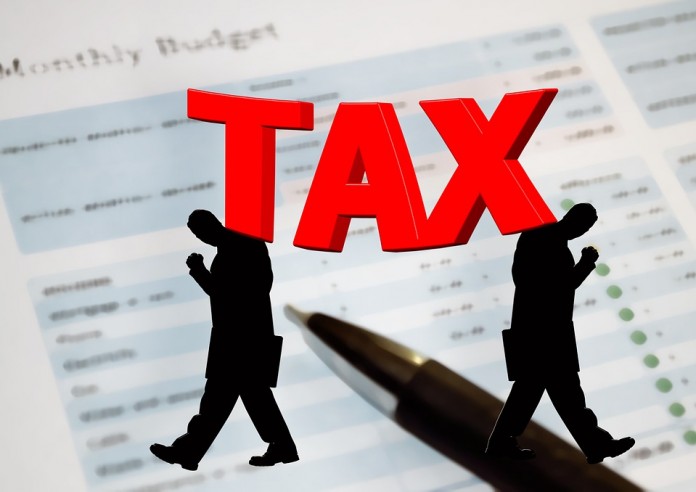This article is written by Krishnendra Joshi, Research Associate, LawSikho
The basic objective of any nonprofit would be to mobilize funds towards the society building or problem-solving purposes it has been set up to achieve. It clearly needs funds for this and if there is a tax benefit attached to the funding, it acts as a great incentive. Therefore, if a non-profit entity were to secure tax benefits both for itself and its donors, it would greatly aid its growth.
How can a nonprofit entity secure tax exemptions for itself?
NGOs enjoy tax exemptions conditional to fulfilling basic statutory requirements under the income tax Act, 1961. Registration u/s 12A of Income-tax Act, 1961 is mandatory to avail this benefit. First & foremost, an NGO desirous of registration u/s 12A of the Act must get itself a PAN number. A PAN card is a basic document required for the purpose of identification of the assessee. Thereafter an application is made to the commissioner of Income tax in form 10A prescribed under rule 17A of income tax rules, 1962. Filling the form is an easy process. It can be done online. The following points must be borne in mind:
- An NGO can either be set up in the form of either public or private charitable trust under the trust Act, 1882 or applicable state acts if any, A trust can further be formed as a religious institution or a partly religious & partly charitable character.
- The personal details & addresses of the founding members along with their PAN card details are also required in the form as a proof of identity verification of the owners.
- The purpose for which the trust/ institution is formed requires disclosure in the form. Charitable purpose forms the basis for seeking registration. Exemptions are available only when the objective of an NGO involves charitable activities.
- FCRA number is also supposed to be specified in case the trust receives donations from foreign sources.
The following documents are required along with the form. These documents help in evidencing the charitable character of the NGO along with proof of the creation of an institution under the respective Act.
- Trust Deed or Memorandum of Association as the case may be.
- Bye-laws for internal management of the organization.
- Proof of ownership of premises of the registered office of the society. An affidavit bearing the registered number is sufficient in this regard. In case, the premises are rented or leased, Notarised copy of the NOC obtained from the landlord is sufficient enough.
- An affidavit stating the fact that the members coming together to form an NGO are not related and there does not exist any conflict of interest among them.
- Copy of audited accounts of the NGO since its inception or last 3 years whichever is less. This requirement serves as a proof evidencing that income is calculated on the correct value for which the exemption is sought by the assessee.
- An activity report detailing the activities of the NGO since its inception or last three years whichever is less. It lends credibility to the NGO showcasing the work done by the NGO on a voluntary basis.
- Electricity Bill, a copy of Water Bill or a copy of house registration document for address verification of the owners.
- Copy of Aadhaar card of owners for identity verification.
- Income tax return and books of account for existing NGOs. it shows proper record keeping and compliance necessary to claim basic statutory benefits.
- An affidavit in support of the fact that the chosen name of the NGO has no resemblance or similarity with the name of NGOs which are already in existence.
Statutory Time Limit: The time limit for examining the application and granting the registration u/s 12A is 6 months from the date of application. Registration will be deemed granted at the end of 6 months if the income tax department lapses in taking timely action in this regard.
Registration u/s 12A is a prerequisite for obtaining registration u/s 80G. However, Registration under 80G is not mandatory, for example, a privately managed trust having its own funds might not need external funds to finance the operations of the trust or institution. In such a scenario, the founders might not require registration u/s 80G. However registration u/s 80G acts as an incentive to the donor towards making partially exempt donations to a compliant organization. In a few cases, the donors can claim 100 % exemption for their charitable contribution too. Thus, It acts as a security measure for ensuring tax savings for the donor.
How can a nonprofit entity secure tax exemption for its donors?
Registration U/s 80G becomes imperative if an NGO is seeking funds in the form of donations from foreign sources. It is also an essential requirement in case an NGO is seeking aid from the CSR funds of a company. There are government schemes also which facilitate funding to an NGO. So, in such cases registration under 80G is not only acting as a source of attraction for potential donors but also becomes an essential regulatory requirement. The application shall be made in triplicate for seeking approval in Form No. 10G.
Requirements for approval of an institution u/s 80G are specified under Rule 11AA of the Income Tax rules, 1962. A copy of registration u/s 12A of the Act is required to be submitted in this regard. The remaining documents to be submitted are the same as those mentioned at the time of obtaining registration u/s 12A.
Some Red Flags: The Commissioner may seek further information from the NGO to ensure that activities of the institution are genuine and in line with the charitable objectives mentioned in the incorporation documents of the NGO. Another caveat is that the NGO must not partake in activities of religious or communal nature. It is also important to note here that the benefit of tax exemption granted to the NGO is subject to yearly review. If in any year, the NGO loses its charitable color and starts deploying the funds, not towards the objectives of charity, its registration will be suspended for that specific year and the income earned will be chargeable to tax in that year. When the entity again starts doing charitable activities in congruence with its objectives, it can claim the benefits of tax exemption again.

Miscellaneous formalities: The organization has to ensure that it gives a dated and stamped receipt as proof of the donation received. The PAN number of the institution must be mentioned also in the receipt along with the registration number specified in the 80G Certificate. If an organization comes under the list of funds in which a donor can claim 100 percent exemption for the amount donated, the organization is also required to have form 58. The form is used to match the break up of the project cost with the amount of donation received. It is also useful to tally the amount authorized under the project with the actual collection of donations.
It is a good practice to apply for registrations under section 12A and 80G simultaneously. It can save time since the submissions required along with the application are similar.
References:
https://cleartax.in/s/charitable-trusts-ngo-income-tax-benefits
http://164.100.47.193/lsscommittee/Public%20Accounts/16_Public_Accounts_27.pdf
https://blog.ipleaders.in/taxation-aspects-of-non-government-organisations/
https://taxguru.in/income-tax/assessment-charitable-trusts-institutions.html?amp
https://enterslice.com/learning/registration-process-12a-and-80g-certificate/
https://vakilsearch.com/advice/80g-certificate-tax-exemption/
 Serato DJ Crack 2025Serato DJ PRO Crack
Serato DJ Crack 2025Serato DJ PRO Crack










 Allow notifications
Allow notifications



Thank you for sharing this informative Blog.